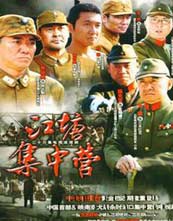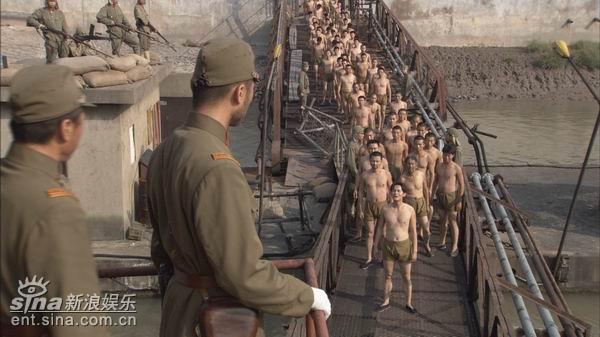During World War II in China, the Japanese army moved huge numbers of Chinese POWs into forced labor camps along major river-sea junctions to maintain the massive Japanese military effort, load/unload trains, repair damaged equipment and ships, etc...
Many of the Chinese POWs were partisans and volunteers who enlisted immediately upon seeing the brutality inflicted upon their families along the route of the Japanese advance, so the threat of sabotage, assassination of Japanese officers, and outright revolt is EXTREMELY high in these camps. Keeping weapons out of these camps is almost impossible, as bamboo and wood were the primary materials used for bunk buildings, window bars, and facilities in the near-tropical Chinese midsouth region, and bamboo slivers sharpen easily and make EXTREMELY effective knives. (I made so many of them, varying sizes from small daggers and spearheads all the way to machetes with some of my aunt's old bamboo clothespoles and cutting boards when I was very young, that my uncle jokingly asked me if I thought the war was still going on.) So the Japanese devised two ways to keep the Chinese prisoners from getting enough impetus to revolt.
1: They housed Nationalist and Communist prisoners together in the same blocks and put them to work in the same assignments. Nationalists and Communists held a blood grudge against each other, even in the face of the Japanese invasion putting the already raging Chinese civil war briefly on hiatus. Many times, a group of prisoners wearing Nationalist regimental insignia and olive green uniforms seeing a Communist 8th Route Army or New Fourth Army soldier in grey amongst them during work outings and vice versa will immediately result in verbal arguments, lewd jokes, insults, and escalate into outright brawls. The Japanese guards encouraged the prisoners to fight and bicker and egged them on.
2: A special cadre of Chinese traitors were placed into the inmates' ranks. These men played the roles of both Nationalist and Communist POWs with readymade military credentials in case their fellow bunkmates got suspicious and questioned them. Their job is to instigate conflicts between the Nationalist and Communist prisoners and maintain an atmosphere of paranoia and distrust. They were also to report back to their Japanese commanders on what is happening amongst the prisoners. Different forms of communication were used every day to keep the rest of the prisoners from seeing just who is snitching. Thus, the Japanese guards almost immediately knew if revolt plots were being made, or if large caches of bamboo knives or stolen guns and grenades were being stored somewhere and those who were caught were executed immediately via firing squads where the entire camp was forced to attend.
Nevertheless, a lot of times, the Nationalist and Communist prisoners in these camps managed to work aside their differences, identify and eliminate the installed traitors in their ranks, and launch successful revolts seeing many of these camps destroyed, their stockpiles of explosives and fuel blown up in spectacular conflagrations that could be heard for miles, and thousands of Japanese soldiers slaughtered, with a lot of these soldiers being reinforcements bound for Okinawa, Guadalcanal, and Tarawa in the final years of the war and never made it there, further tightening the Allied noose around the Japanese Empire's neck...
Is this thread an attempt to sow division and distrust among the ranks of us gunnies??? LOLOLOL
The Japanese actually put in some impressive work, worthy enough to be made into some awesome Chinese action docudramas in the recent years...
Jiang Tang Jizhong Ying (2007) (Death Camp at Jiang Tang)
He does look like the guys from the Fed meet up meme though.



